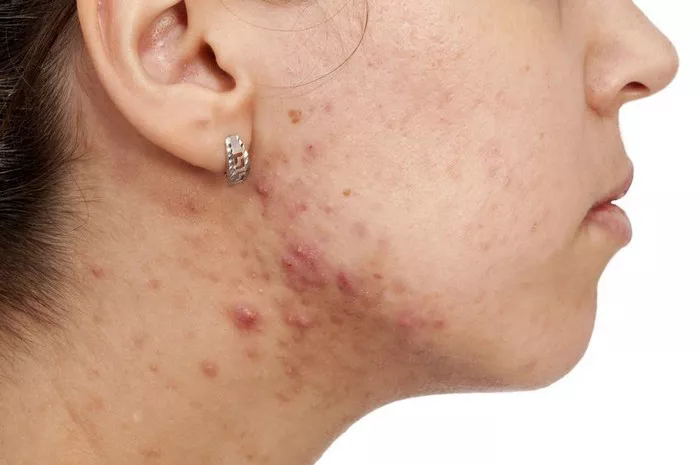Psoriasis is a chronic autoimmune condition characterized by the rapid proliferation of skin cells, leading to red, scaly patches that can be itchy and uncomfortable. It affects millions of people worldwide, impacting not only their physical health but also their quality of life. One of the most common behaviors associated with psoriasis is scratching. However, there is a prevalent concern among patients whether scratching exacerbates the condition or contributes to its spread. This article aims to delve into this query, exploring the relationship between scratching and the spread of psoriasis, backed by scientific evidence and expert opinions.
Understanding Psoriasis: A Brief Overview
Before delving into the effects of scratching on psoriasis, it’s essential to have a basic understanding of the condition itself. Psoriasis is a multifactorial disease involving genetic, environmental, and immunological components. It results from an overactive immune response, causing inflammation and abnormal skin cell turnover. This leads to the formation of plaques, which are raised, red patches covered with silvery scales. These plaques commonly appear on the elbows, knees, scalp, and lower back but can affect any part of the body.
Psoriasis is often associated with various comorbidities, including psoriatic arthritis, cardiovascular diseases, and metabolic syndrome. Its impact extends beyond the physical realm, as it can significantly affect mental health, leading to depression, anxiety, and diminished self-esteem. Therefore, effective management of psoriasis is crucial to mitigate its symptoms and improve patients’ overall well-being.
The Itch-Scratch Cycle
Itching, medically known as pruritus, is a hallmark symptom of psoriasis. The urge to scratch can be intense and relentless, prompting individuals to engage in repetitive scratching behaviors. This phenomenon is commonly referred to as the itch-scratch cycle. While scratching provides temporary relief from itching, it can potentially exacerbate the underlying inflammation and skin damage associated with psoriasis.
The Impact of Scratching on Psoriasis
The relationship between scratching and psoriasis is complex and multifaceted. While scratching may provide immediate relief from itching, several studies suggest that it can worsen psoriasis symptoms in the long run. Here’s how scratching may contribute to the exacerbation and spread of psoriasis:
1. Skin Trauma:
Scratching can cause microtrauma to the skin, disrupting the epidermal barrier and triggering an inflammatory response. This inflammation can exacerbate existing psoriatic lesions and promote the development of new ones. Additionally, skin trauma induced by scratching may stimulate the release of pro-inflammatory cytokines, further fueling the inflammatory cascade associated with psoriasis.
2. Koebner Phenomenon:
The Koebner phenomenon, also known as isomorphic response, refers to the development of psoriatic lesions in areas of skin trauma or injury. Scratching can act as a precipitating factor for the Koebner phenomenon, leading to the spread of psoriasis to previously unaffected skin. Therefore, individuals with psoriasis are advised to avoid excessive scratching to minimize the risk of new lesion formation.
3. Secondary Infection:
Persistent scratching can compromise the skin’s integrity, making it more susceptible to bacterial, viral, or fungal infections. Secondary infections can exacerbate psoriasis symptoms and delay the healing process. Furthermore, certain infections, such as streptococcal throat infections, have been linked to the onset or exacerbation of psoriasis in susceptible individuals.
4. Psychological Impact:
The urge to scratch and the visible manifestations of psoriasis can significantly impact patients’ psychological well-being. Excessive scratching may result in feelings of frustration, embarrassment, and low self-esteem, further exacerbating the psychological burden of the disease. Addressing the psychological aspects of psoriasis is essential for comprehensive disease management and improving patients’ quality of life.
Strategies to Manage Itching and Minimize Scratching
While scratching may provide temporary relief from itching, it is essential for individuals with psoriasis to adopt strategies to manage itching effectively and minimize scratching behaviors. Here are some tips to help alleviate itching and reduce the urge to scratch:
1. Topical Treatments:
Topical corticosteroids, calcineurin inhibitors, and emollients can help alleviate itching and reduce inflammation associated with psoriasis. Applying these medications as prescribed by a healthcare professional can help manage symptoms and minimize the need for scratching.
2. Moisturization:
Regular moisturization with emollients or humectants can help hydrate the skin and alleviate itching associated with psoriasis. Moisturizers containing ingredients such as urea, lactic acid, or ceramides can help restore the skin barrier and reduce dryness and irritation.
3. Cool Compresses:
Applying cool compresses or ice packs to affected areas can provide temporary relief from itching and help numb the skin. However, it is essential to avoid direct contact with ice to prevent frostbite or skin damage.
4. Relaxation Techniques:
Stress and anxiety can exacerbate itching and trigger scratching behaviors in individuals with psoriasis. Practicing relaxation techniques such as deep breathing, meditation, or yoga can help reduce stress levels and promote a sense of calmness and well-being.
5. Avoiding Triggers:
Identifying and avoiding triggers that exacerbate itching and scratching is essential for managing psoriasis effectively. Common triggers include stress, certain medications, alcohol consumption, smoking, and exposure to cold, dry weather.
6. Seeking Professional Help:
If itching persists despite self-care measures or if psoriasis symptoms worsen, it is crucial to seek professional medical advice. A dermatologist can provide personalized treatment recommendations tailored to individual needs, which may include prescription medications, phototherapy, or biologic therapies.
Conclusion
In conclusion, while scratching may provide temporary relief from itching associated with psoriasis, it can potentially exacerbate the condition and contribute to its spread. The itch-scratch cycle perpetuates a vicious cycle of inflammation and skin damage, leading to increased discomfort and impaired quality of life for individuals with psoriasis. Therefore, effective management of itching and scratching behaviors is essential for minimizing disease progression and improving patient outcomes. By adopting strategies to alleviate itching, avoiding triggers, and seeking professional medical advice when needed, individuals with psoriasis can better manage their symptoms and enhance their overall well-being.

























